The Nature vs. Nurture Debate:
What New Research Means for Adoption Families
Every adopted family has wondered about it at some point.
You see your child laugh in exactly the same way as their birth parent, or notice they have the same stubborn streak. Then you watch them develop interests and habits that clearly come from growing up in your home.
The age-old nature vs. nurture question emerges: how much of who our children become is determined by their genes, and how much by their environment?
The fascinating thing is, science has moved far beyond the either-or nature vs. nurture debate we used to have.
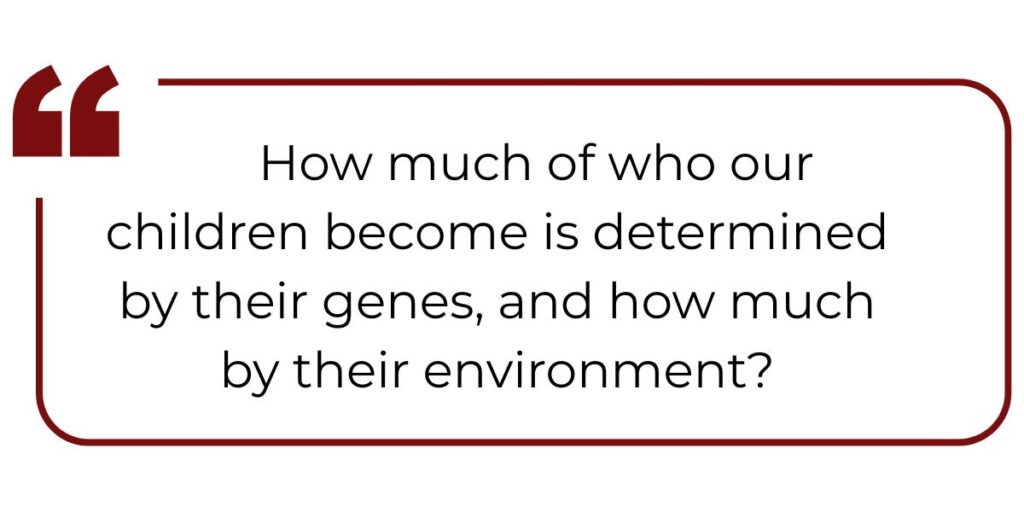
Researchers Have Studied Identical Twins
For decades, researchers have studied identical twins to understand the nature versus nurture question. The logic is elegant: identical twins share 100% of their DNA, so any differences between them must come from their environment. But recent breakthroughs are revealing just how complex this nature vs. nurture interaction really is.
Nature vs. Nurture: What Brain Imaging Is Teaching Us
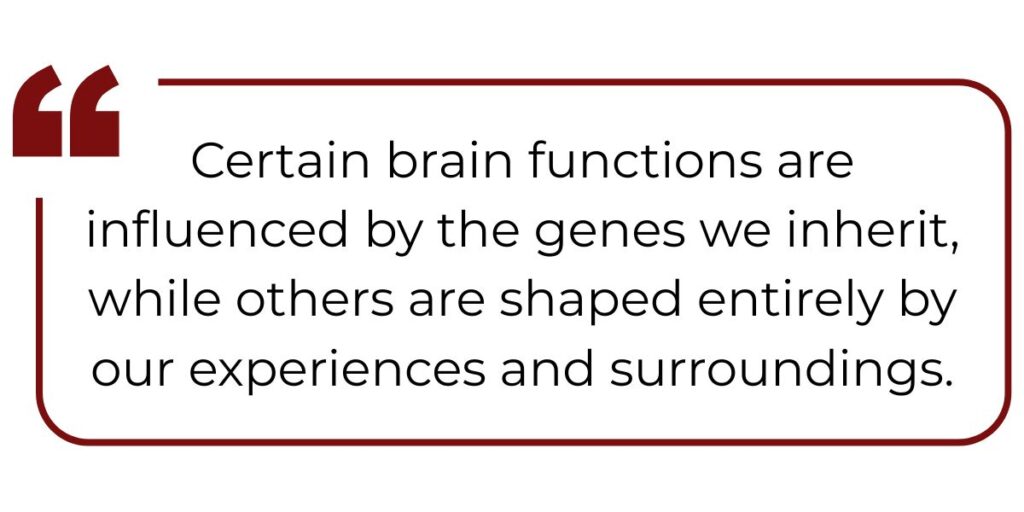
A groundbreaking 2024 study led by Dr. Haeme Park at Neuroscience Research Australia used advanced brain imaging techniques to investigate cognitive and emotional processes in 270 twins. The researchers had twins complete various tasks while their brains were scanned using functional MRI technology.
What they discovered was remarkable in its complexity. Some emotional and cognitive tasks were partly associated with genetics, and others exclusively with environment. In other words, certain brain functions are influenced by the genes we inherit, while others are shaped entirely by our experiences and surroundings.
The researchers found that “for some of these networks, genetics plays a small to moderate, but significant role. And for other processes, it’s only the environment that determines brain function”. This means that even at the most fundamental level of brain function, we can’t separate nature from nurture—they work together in intricate ways.
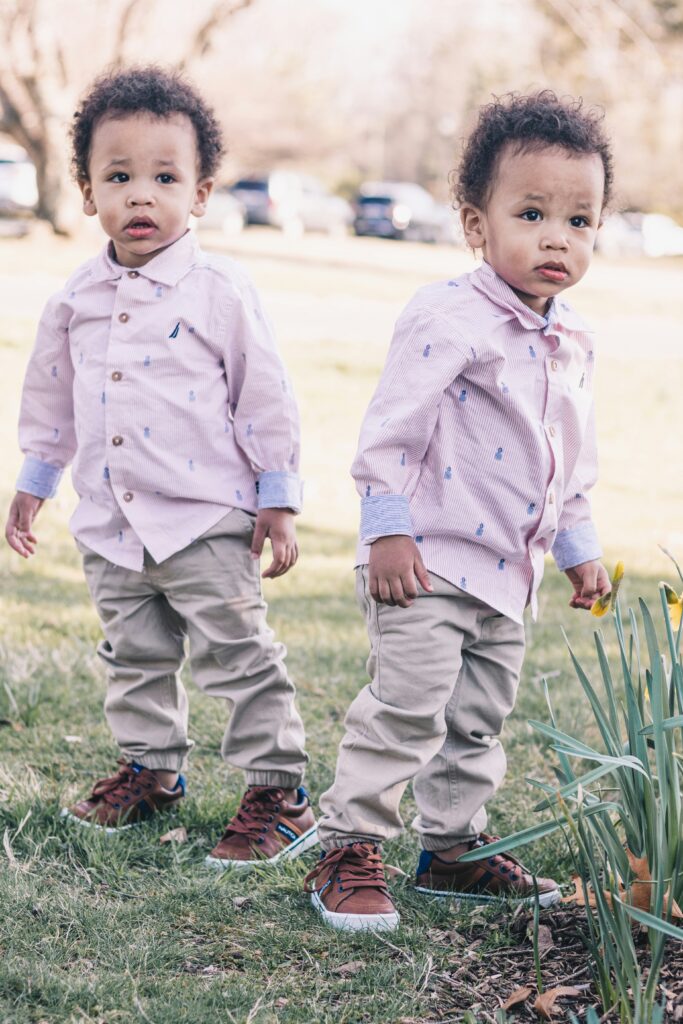
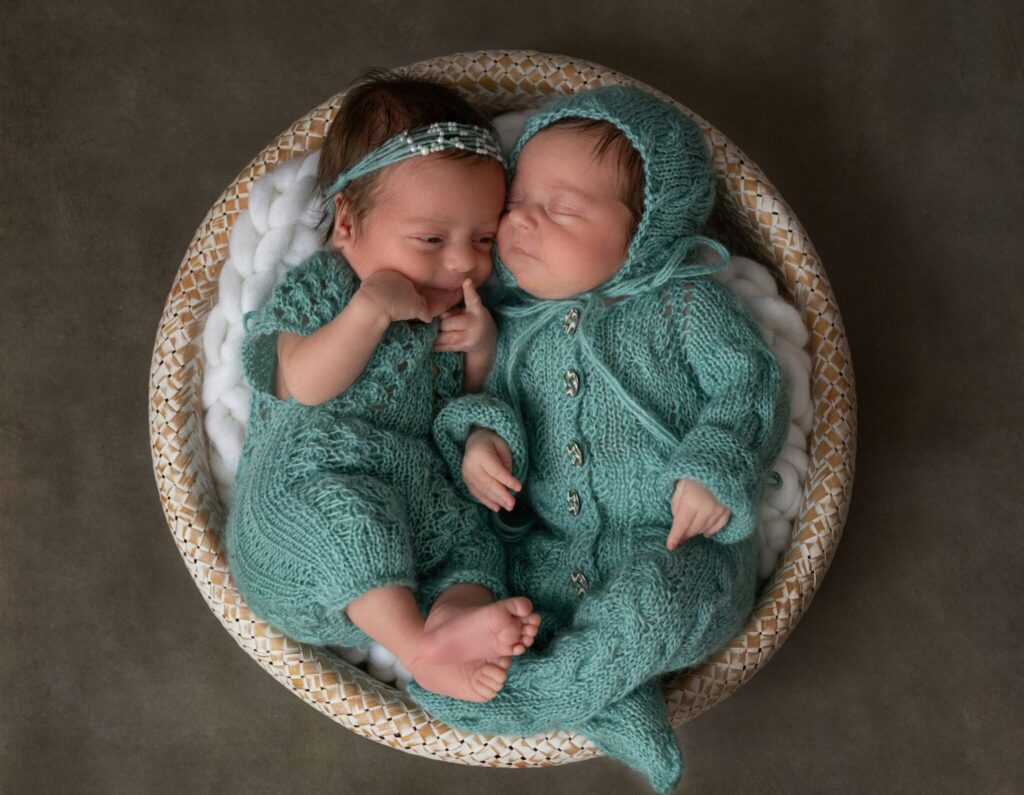
Beyond Nature vs. Nurture: The Game-Changer Called Epigenetics
Perhaps the most exciting development in the nature vs. nurture field is our understanding of epigenetics. New scientific research shows that environmental influences can actually affect whether and how genes are expressed. In fact, scientists have discovered that early experiences can determine how genes are turned on and off and even whether some are expressed at all.
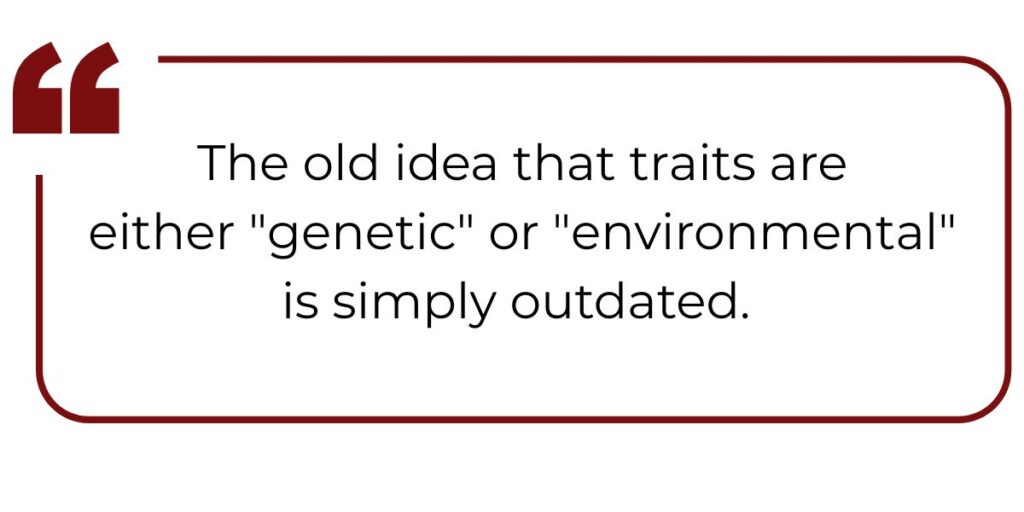
Think about that for a moment. It’s not just that environment influences behavior alongside genetics—the environment can actually change how our genes work. These epigenetic patterns can also be affected by an organism’s environment, they serve as an important bridge between life experiences and phenotypes. Epigenetic patterns may change throughout one’s lifespan, by an early life experience, environmental exposure or nutritional status.
This completely revolutionizes how we think about adoption and the nature vs. nurture dynamic. The genes inherited from one’s parents do not set a child’s future development in stone. The environment in which one develops, before and soon after birth, provides powerful experiences that chemically modify certain genes which, in turn, define how much and when they are expressed.
What This Means for Families
The old idea that traits are either “genetic” or “environmental” is simply outdated. Instead of defending extreme nativist or nurturist views, most psychological researchers are now interested in investigating how nature and nurture interact in a host of qualitatively different ways.
For adoptive families, this research offers a nuanced understanding of the nature vs. nurture dynamic. Yes, children inherit certain tendencies and traits from their birth families. But the environments they grow up in—the love, experiences, opportunities, and even stresses they encounter—can literally change how those genes are expressed.
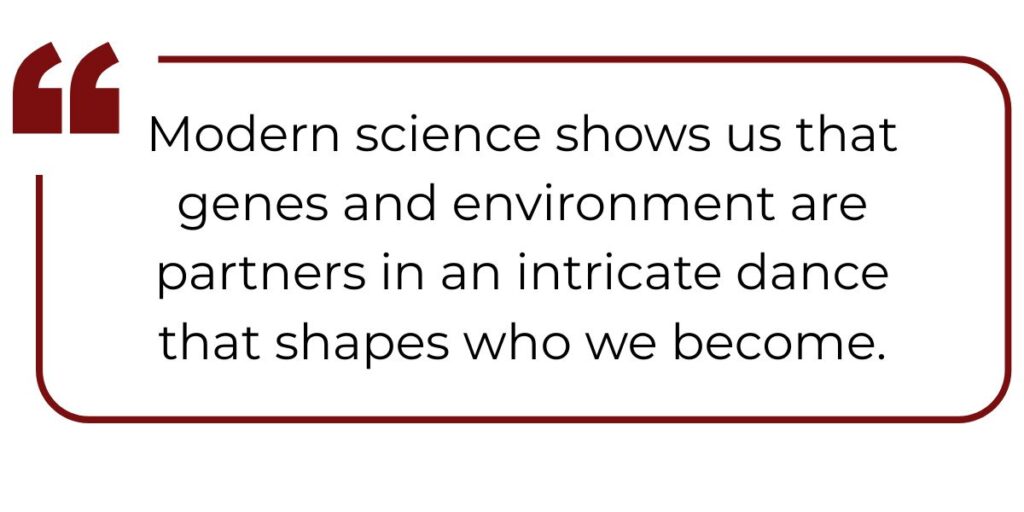

All animal behaviour is a result of both genetic and environmental factors, and humans are no exception. The traits we see in our children emerge from this complex dance between what they inherited and what they experience—the very essence of nature vs. nurture working together.
The Continuing Mystery
Even with these advances, genetic influences are not as deterministic as many believe. The latest research from major twin studies shows that while genetics play important roles in many traits, they don’t determine destiny. Environment, relationships, experiences, and choices all matter tremendously.
Over the years, identical twins reared apart developed personalities and interests that showed about the same degree of resemblance as identical twins raised together. This suggests that while genetics provide a foundation, the specific environments twins experience shape how those genetic tendencies are expressed.
The Bottom Line
The nature versus nurture debate isn’t really a debate anymore. Nature vs. Nurture is no longer a debate—it’s nearly always both! Modern science shows us that genes and environment are partners in an intricate dance that shapes who we become.
For families touched by adoption, this research offers both wonder and reassurance. The children in our families carry the biological legacy of their birth parents, but they’re also being shaped every day by the love, experiences, and environments we provide. Both matter. Both contribute to the amazing, complex individuals our children are becoming.
Rather than wondering whether a trait comes from “nature” or “nurture,” we can marvel at how these forces work together to create the unique human beings we’re privileged to know and love.

Sources:
- Psychology Today: Decoding Nature and Nurture: Insights From Twin Studies
- UNSW: Nature vs nurture: shedding light on heritable brain activity
- Medical Xpress: Nature vs nurture: Twin study sheds light on heritable brain activity
- Harvard Center on the Developing Child: What is Epigenetics?
- Simply Psychology: Nature vs. Nurture in Psychology
- University of Michigan: Nature vs. nurture? It’s both
- ScienceDirect: From nature to nurture – How genes and environment interact to shape behaviour
- Nature Human Behaviour: Maximizing the value of twin studies in health and behaviour
